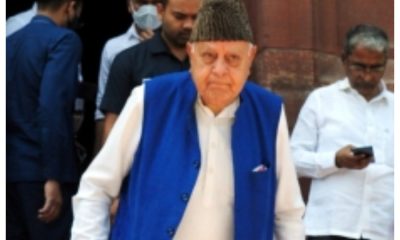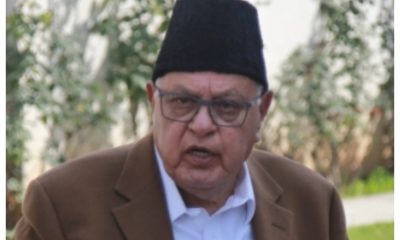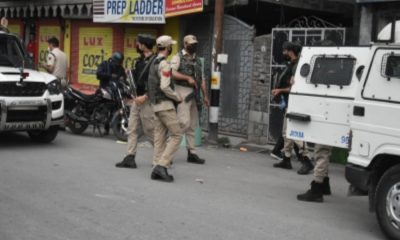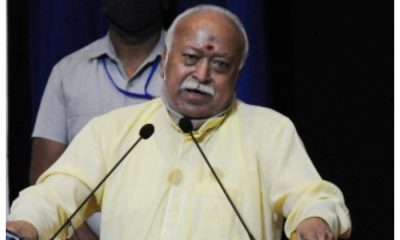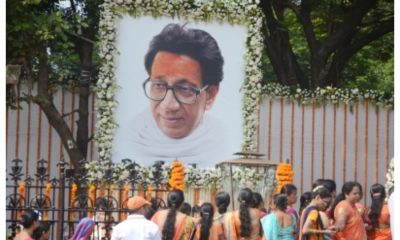National News
Why Farooq Abdullah is Villain No. 1 in the eyes of Kashmiri Pandits?
A majority of Kashmiri Pandits view Farooq Abdullah, the former Chief Minister of the erstwhile state of Jammu and Kashmir, as the main culprit behind the atrocities committed against them.
They believe that he was responsible for all the events that preceded the mass exodus of the minority community and the advent of terrorism in the Valley.
Farooq Abdullah was the Chief Minister from November 7, 1986 to January 18, 1990. It was this period which saw Kashmir gradually falling down the precipice, and despite warnings by intelligence agencies the indifference seemed insurmountable.
In February 1986, massive communal attacks occurred in South Kashmir. Muslim mobs looted and plundered or destroyed the properties and temples of Kashmiri Pandits.
Ghulam Mohammad Shah, the brother-in-law of Farooq Abdullah, was the Chief Minister then. He failed to curb the violence and called in the army to curb the mayhem.
His government was dismissed in March 1986 by the then Governor Jagmohan. It was reported that Mufti Sayeed, then a Congress leader, had instigated the violence as he was keen to be the Chief Minister and replace Shah.
Rajiv Gandhi was the Prime Minister then who later gave Sayeed a seat in the Rajya Sabha and also made him a Union Minister. In November 1986, after months of hectic parleys, Rajiv Gandhi and Farooq Abdullah signed an accord and the latter was reinstated as the Chief Minister.
It was this period that saw the build up to the pogrom.
Ramesh Raina, President (All India Kashmiri Samaj (AIKS), said, “This 1986-1989 period is significant in the history of Kashmir, which is often ignored. The exodus did not happen overnight. There was full preparation for this. Abudllah fooled the nation with this accord. You can say he was incompetent and he didn’t have any control, or you can say he was totally involved, knew everything and let things build up.”
Panun Kashmir leader Ramesh Manvat said, “Muslim Conference, the original avatar of ‘National’ Conference started as a group to fight for the rights of Muslims in Kashmir in 1930s; turned their tide against then Maharaja Hari Singh; nourished the dream of an Independent Kashmir (following their call of ‘Quit Kashmir’ in 1940s) — leading to the dismissal of its founder Sheikh Mohammad Abdullah in 1950s … The legacy of communal Muslim mindset and inconsistencies in National Conference’s approach towards minorities — Kashmiri Pandits and the ‘idea of India’ they represent have been carried forward by Farooq Abdullah, during his long reign as CM of J&K.
“Farooq Abdullah, as a tacit supporter of the happenings on the ground was busy playing golf and giving joy rides to Bollywood heroines, before finally choosing to run away to London when Kashmir was burning and a full-blown genocide of Pandits was taking place.”
Former Director General of Police of Jammu and Kashmir, Shesh Paul Vaid, tweeted on March 16: “Many people in the country do not know this #KashmirFiles fact: first batch of ISI trained were arrested by J&K Police but ill-thought political decisions had them released and the same terrorists later on led the many terrorist organisations in J&K.”
Vaid was the DGP of J&K from December 31, 2016 till September 6, 2018. He also added in his tweet: “Some of the notorious names: Mohammed Afzal Sheikh of Trehgam Rafiq Ahmed Ahangar Mohammad Ayub Najar Farooq Ahmed Ganai Ghulam Mohammed Gujri Farooq Ahmed Malik Nazir Ahmed Sheikh Ghulam Mohi-Ud-Din Teli. Could this have been possible w/o the knowledge of the Union Govt of 1989?”
The fact that the intelligence agencies had repeatedly been alerting about the hordes of Kashmiris, especially youth, crossing over to PoK for arms training, went largely unheard of.
A lot of kidnappings were taking place, especially of the government employees, a maximum number of them were Kashmiri Pandits, but no action was taken.
Threats were openly given in local newspapers, posters were pasted and hit-lists made, but the administration seemed lifeless. The then Governor Jagmohan had mentioned the situation to then Prime Minister Rajiv Gandhi through letters dated April 20, 1990.
“Need I remind you that from the beginning of 1988, I had started sending ‘Warning Signals’ to you about the gathering storm in Kashmir? But you and the power wielders around you had neither the time, nor the inclination, nor the vision, to see these signals. They were so clear, so pointed, that to ignore them was to commit sins of true historical proportions,” Jagmohan wrote in the letter.
His fear came true and the minorities and moderates had to bear the brunt even as Farooq Abdullah left the Valley for London soon after.
“Fifty per cent Kashmiri Pandits fled on January 19. It did not happen suddenly. Farooq Abdullah knows all. He has to answer,” said Ramesh Raina.
“Farooq Abdullah ran away to London while the Valley was burning. He was the founder member of Alfata, JKLF. While he was in chair, youth were freely transported to Pakistan through the LoC. How was it possible without his knowing?
“Why were terrorists being released from jail then? Why did he resign overnight and the next day the exodus happened? It was all planned because then all would have come to his head. So he resigned. But could the exodus have happened without a plot behind it,” he asked.
While Farooq Abdullah was in J&K, Mufti Mohammad Sayeed was the Home Minister at the Centre. His role as HM is also questioned by the community.
Surinder Kaul, the chief of Global Kashmiri Pandit Diaspora, said, “After we were forced to flee from Kashmir, we staged protests. I remember one meeting with then Home Minister Mufti Sayeed in 1990. All he had to say was ‘yes, this is not ok’.
“He had no answers to our questions. We told him, ‘why the local police and intelligence network had just vanished. Why was no one doing their work? Why was there no security’. But he just kept mum. That day I realised that the state and Central power system of our country had collapsed and no one was there to help us.”
“Farooq Abdullah has double standards. He always speaks one thing in Delhi and another in Kashmir. He never provided good governance. He protected the elite and never worked for the common people. To keep his fiefdom alive, he divided the communities. When Kashmiri Pandits were being killed, maimed, women were gang-raped, loot and arson had become the order of the day, where was he,” Kaul asked.
There have been times when Farooq Abdullah had borne the brunt of Kashmiri Pandits’ ire. In 2019, when he tried to meet a group of Kashmiri Pandits, who had come to Srinagar on a pilgrimage visit, he had to make a hastened retreat after slogans were raised against him.
Kashmiri Pandits feel that if Farooq Abdullah had taken strong steps, Kashmir would not have fallen to terrorism and the minorities would not have been tormented and forced out.
The community is seeking answers, and wants a judicial commission be instituted and Farooq Abdullah to be the first one to be investigated.
Crime
CPI-M’s Kerala local polls candidate sentenced to 20 years in bomb attack case

Kannur (Kerala), Nov 25: V.K. Nishad, the CPI-M candidate contesting from Ward 46 of Kerala’s Payyannur Municipality, now faces a serious legal roadblock to becoming a people’s representative after a court here on Tuesday sentenced him to 20 years in prison in an over-decade-old bomb attack case.
If he wins the upcoming local body polls, his ability to assume office will be severely restricted due to this conviction.
The Thaliparamba Additional District Sessions Court sentenced Nishad and fellow CPI-M worker T.C.V. Nandakumar to 20 years’ rigorous imprisonment and imposed a fine of Rs 2.5 lakh each.
However, the court observed that serving 10 years would be sufficient to execute the sentence.
The verdict has sent shockwaves through local political circles, particularly as Nishad is actively campaigning as the CPI-M-backed LDF nominee.
The case dates back to August 1, 2012, when police personnel were reportedly targeted with country-made bombs in Payyannur town.
The attack occurred following heightened tensions over the arrest of senior CPI-M leader P. Jayarajan in connection with the Shuhaib murder case.
According to the prosecution, Nishad and his associates hurled bombs at the police with the intent to kill, prompting charges under IPC Section 307 (attempt to murder) and Sections 3 and 4 of the Explosive Substances Act.
The court, presided over by Additional Sessions Judge K.N. Prashanth, held both accused guilty of attempted murder and illegal use of explosive materials.
The judge noted that the attack was not merely an act of protest, but a deliberate attempt to cause grievous harm to law enforcement officers.
With the local elections approaching, the ruling has thrown up a serious dilemma for the LDF camp.
If Nishad secures a win, legal and procedural challenges could prevent him from officially taking charge as a municipal councillor due to disqualification norms linked to criminal convictions.
As the political and legal ramifications unfold, Payyannur and Kerala watch closely.
Crime
Clock starts to tick for actor Dileep as court verdict in actress abduction case slated for Dec 8
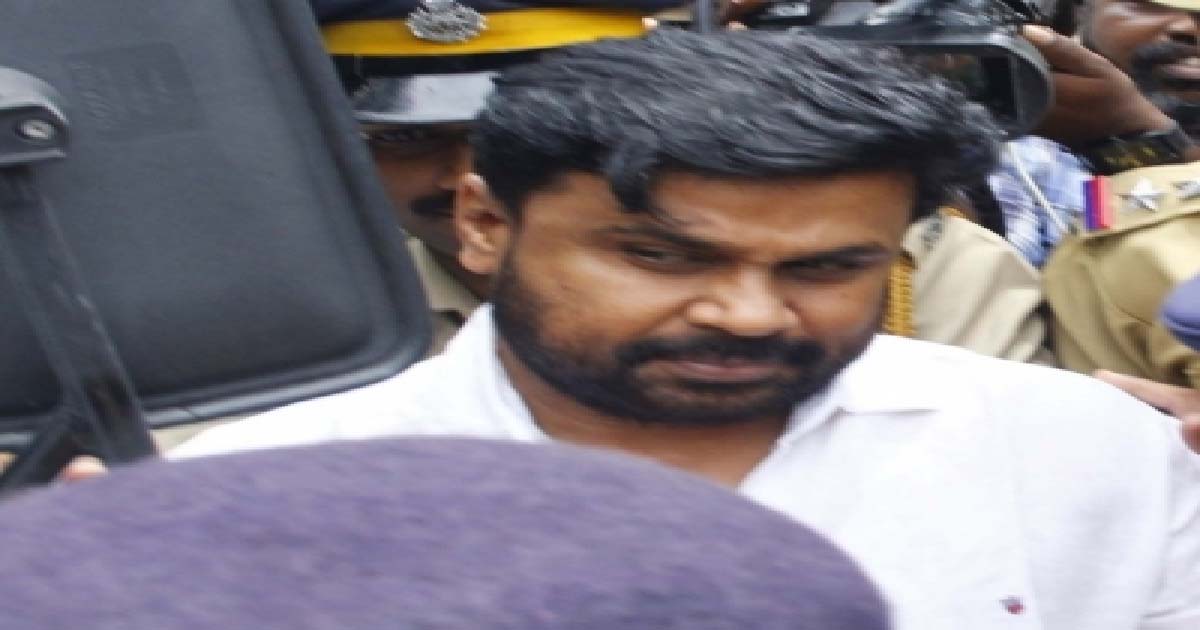
Kochi, Nov 25: A Kerala court on Tuesday announced that it will pronounce its verdict on December 8 in the sensational 2017 actress abduction and assault case, in which popular Malayalam actor Dileep stands as the eighth accused, charged with criminal conspiracy.
The Ernakulam Principal Sessions Court has directed all 10 accused to be present in the Court on December 8.
Dileep was arrested and spent several weeks in jail before getting bail in 2017.
The case stems from one of the most shocking incidents in Kerala’s recent history.
On February 17, 2017, a leading Malayalam actress was abducted and sexually assaulted inside a moving car while travelling from a film set in Thrissur to Kochi.
The prime accused, Sunil Kumar alias Pulsar Suni, was arrested soon after, along with his close associates, all alleged to be part of the assault plan.
After spending seven years in jail, Suni was recently granted bail by the Supreme Court.
Investigators state that Suni had been working on film shooting sets as a driver since 2010 and had known Dileep personally.
According to the police charge sheet, Dileep allegedly harboured deep personal resentment against the actress, accusing her of informing his former wife about his alleged relationship with another actor — a development that reportedly caused friction and led to marital upheaval.
The prosecution claims this strained personal equation led to a conspiracy, with Dileep purportedly seeking revenge by using Suni and his associates to intimidate and humiliate the actress.
Dileep, however, has consistently denied all allegations, claiming he has been framed.
The case, unprecedented for its combination of cinema and crime, has seen prolonged legal proceedings, high-stakes witness testimonies, multiple forensic examinations, allegations of evidence tampering, and intense media scrutiny over the years.
As the court moves toward the long-awaited verdict, the Malayalam film industry, legal observers, and the public are preparing for a judgment that could have far-reaching implications not just for the high-profile accused but for questions of justice, accountability, and the rights of survivors in India’s entertainment sector.
Business
Sensex, Nifty end lower over monthly Futures and Options expiry
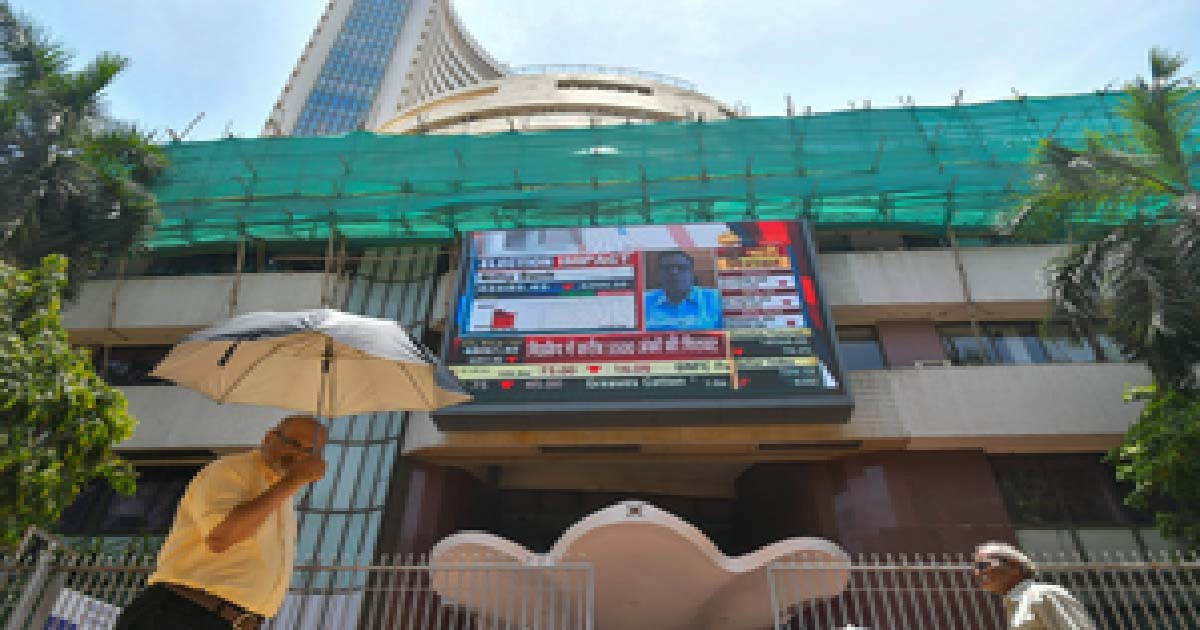
Mumbai, Nov 25: Indian stock markets ended in the red on Tuesday as traders reacted to the monthly expiry of Nifty futures and options contracts for the November series.
The Sensex closed 313.7 points lower at 84,587.01, a decline of 0.37 per cent. The Nifty also slipped, ending 74.7 points or 0.29 per cent down at 25,884.8.
“On the Nifty options front for the upcoming weekly expiry on December 2, significant call buildup was recorded at the 26,000 and 26,200 strike levels, while on the put side, notable additions were seen at the 26,000 and 25,500,” experts said.
Among key stocks on the Sensex, Trent, Tata Motors PV, HCLTech, Infosys and Power Grid were the top losers.
On the other hand, Bharat Electronics Ltd (BEL), State Bank of India (SBI), Tata Steel and Eternal were among the major gainers.
Sector performance was mixed. The Nifty Realty index gained 1.62 per cent, making it the best-performing sector of the day, while Nifty PSU Bank rose 1.44 per cent.
However, Nifty IT fell 0.57 per cent and Nifty Media dropped 0.80 per cent.
Broader markets were more resilient than the frontline indices. The Nifty Midcap 100 index gained 0.36 per cent, while the Nifty Smallcap 100 added 0.19 per cent — showing continued buying interest in mid- and small-cap stocks.
Market experts said the expiry-related volatility and profit booking weighed on benchmarks, while select sectors continued to see fresh inflows ahead of December trading sessions.
“Caution prevailed as investors awaited clarity on a possible rate cut in the upcoming FOMC meeting and progress on the Indo-US trade deal, despite some improving signals,” analysts said.
They added that selling pressure is visible near the 26,000 level, though downside appears limited given strong domestic fundamentals, including a solid earnings outlook for H2.
“PSU banks and real estate stocks outperformed, supported by a strong revival in home loan demand and rising market share for PSU banks,” analysts mentioned.
-

 Crime3 years ago
Crime3 years agoClass 10 student jumps to death in Jaipur
-

 Maharashtra1 year ago
Maharashtra1 year agoMumbai Local Train Update: Central Railway’s New Timetable Comes Into Effect; Check Full List Of Revised Timings & Stations
-

 Maharashtra1 year ago
Maharashtra1 year agoMumbai To Go Toll-Free Tonight! Maharashtra Govt Announces Complete Toll Waiver For Light Motor Vehicles At All 5 Entry Points Of City
-

 Maharashtra1 year ago
Maharashtra1 year agoFalse photo of Imtiaz Jaleel’s rally, exposing the fooling conspiracy
-

 National News1 year ago
National News1 year agoMinistry of Railways rolls out Special Drive 4.0 with focus on digitisation, cleanliness, inclusiveness and grievance redressal
-

 Maharashtra1 year ago
Maharashtra1 year agoMaharashtra Elections 2024: Mumbai Metro & BEST Services Extended Till Midnight On Voting Day
-

 National News1 year ago
National News1 year agoJ&K: 4 Jawans Killed, 28 Injured After Bus Carrying BSF Personnel For Poll Duty Falls Into Gorge In Budgam; Terrifying Visuals Surface
-

 Crime1 year ago
Crime1 year agoBaba Siddique Murder: Mumbai Police Unable To Get Lawrence Bishnoi Custody Due To Home Ministry Order, Says Report



